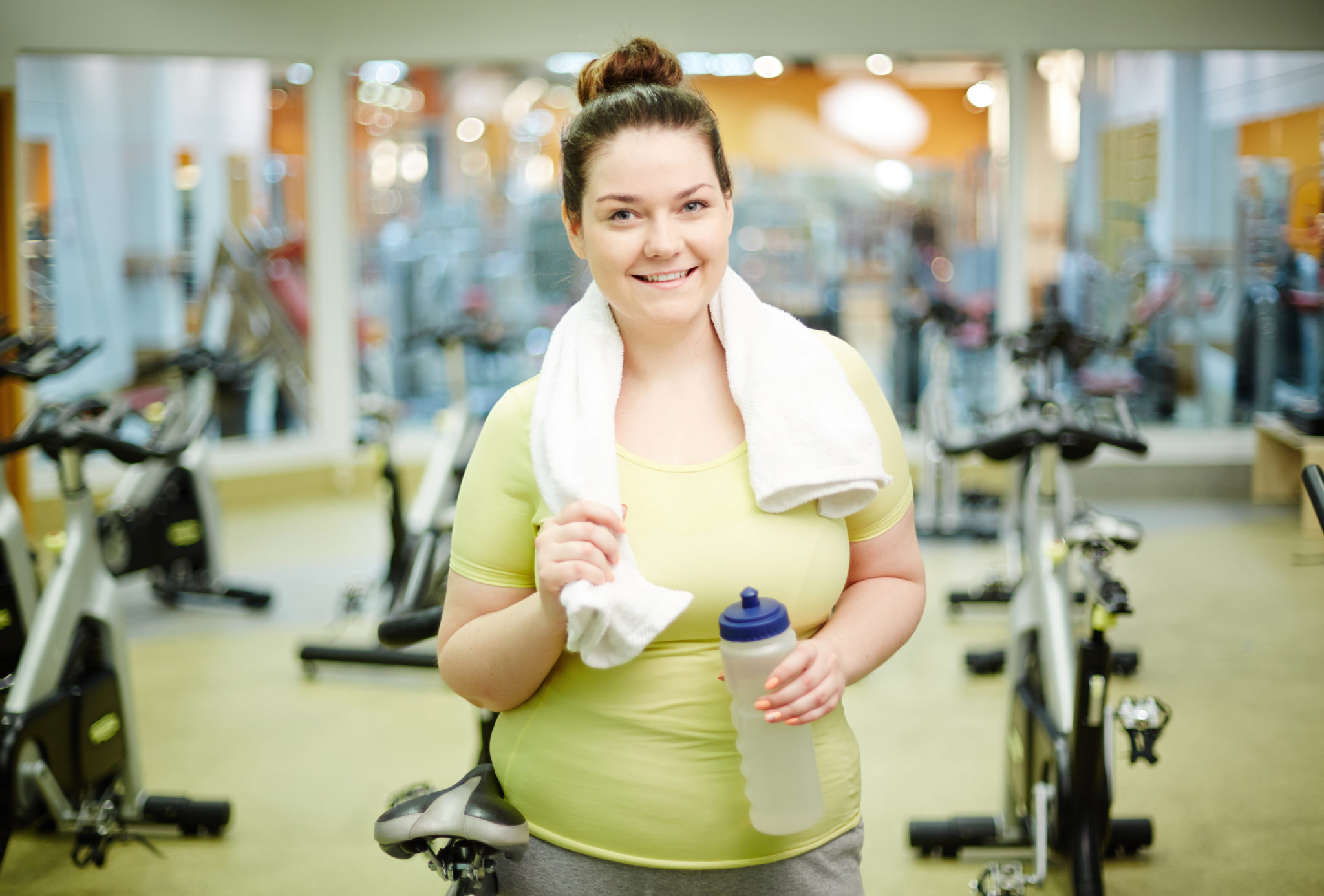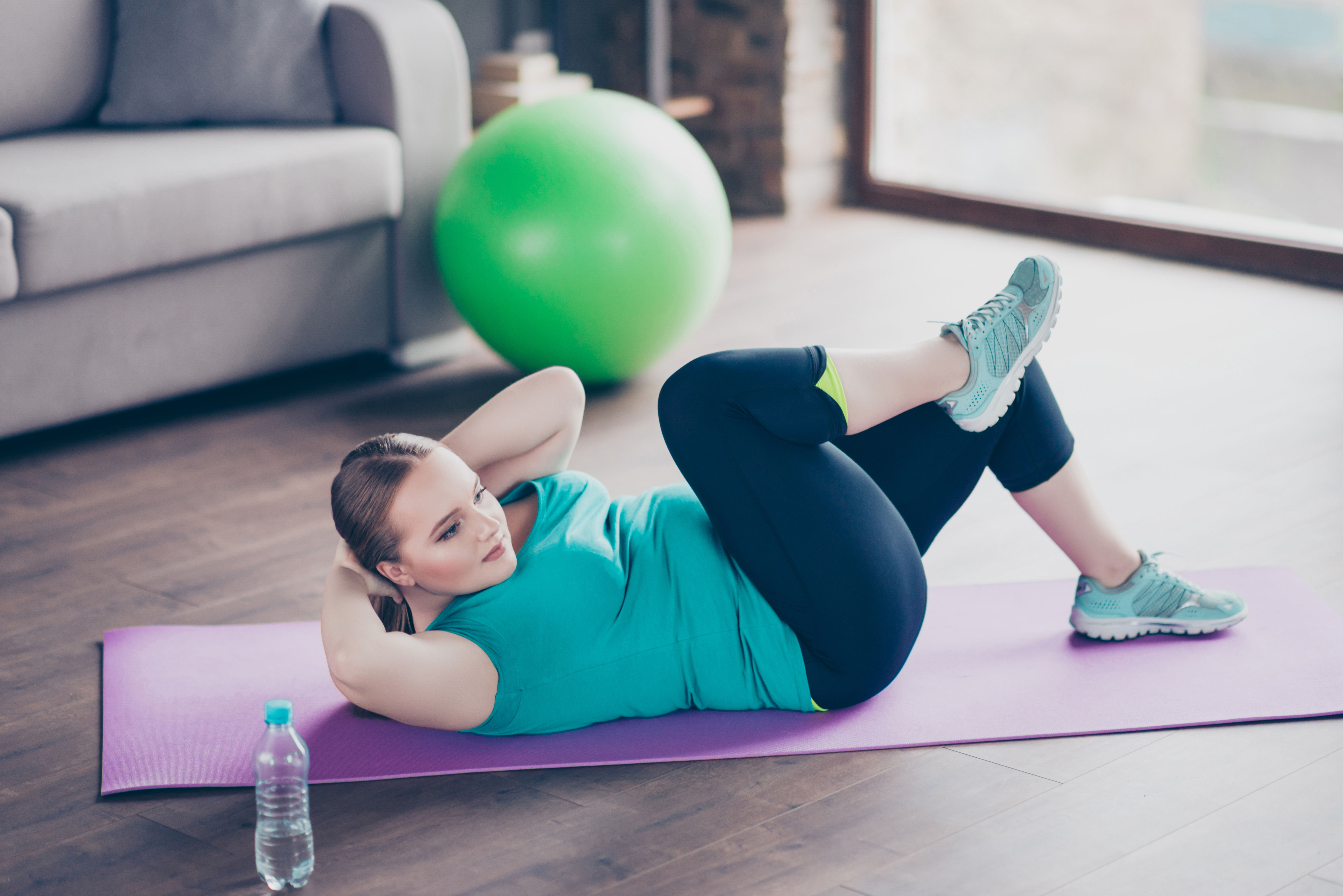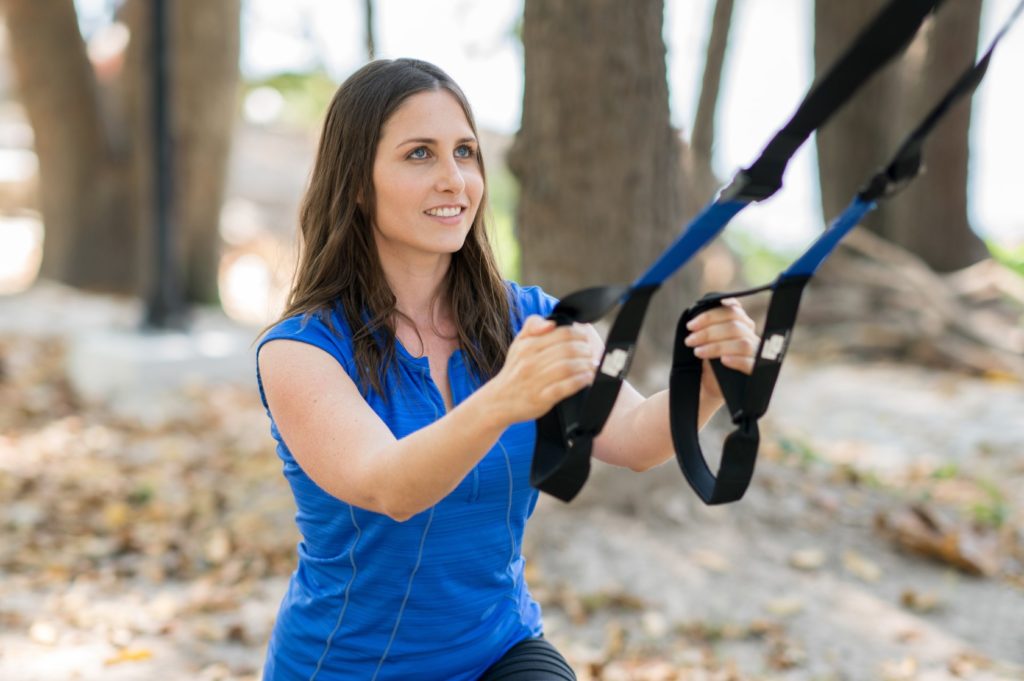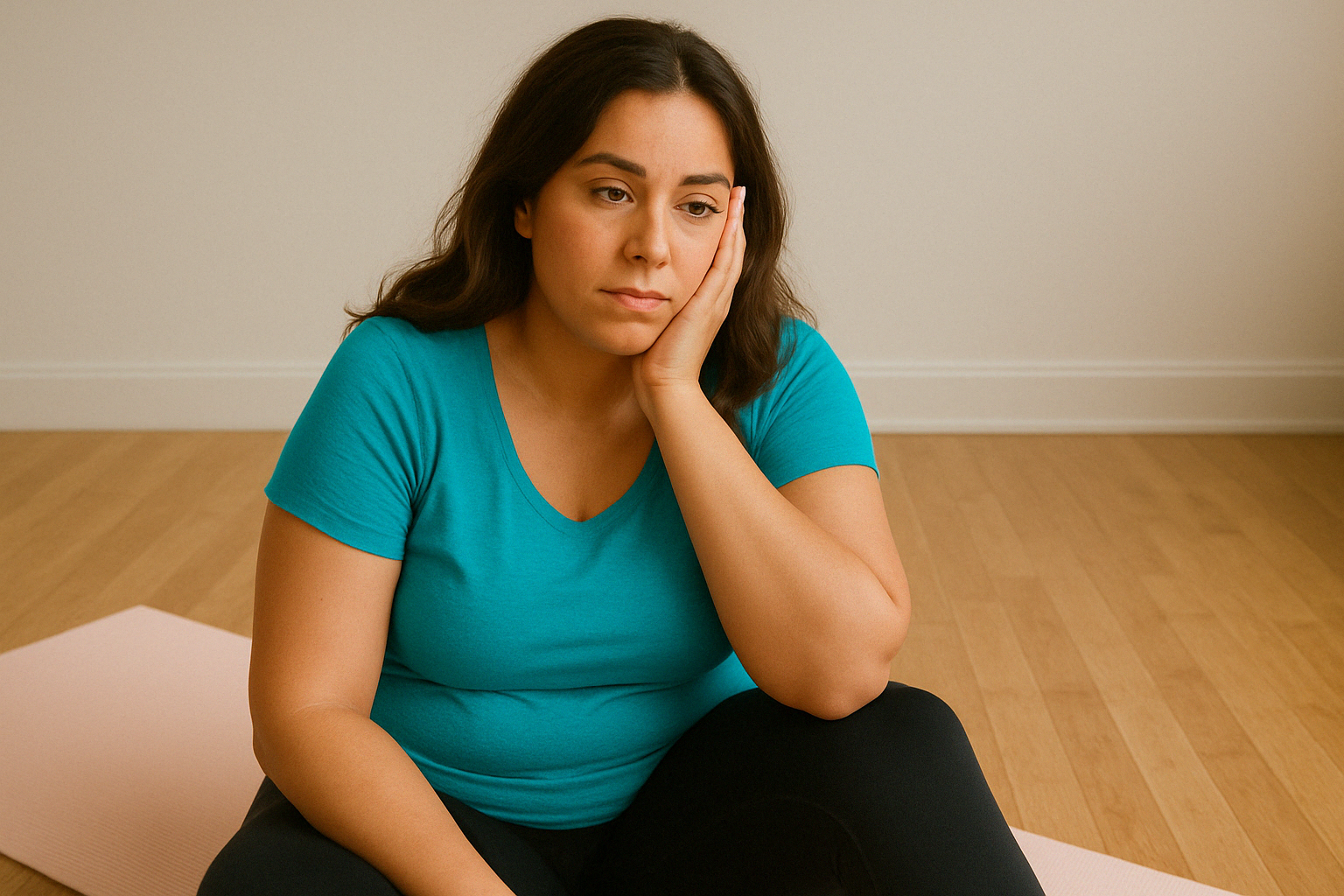If you google “how long should you work out if you have PCOS?” you will find conflicting information. What’s worse- most of what you’ll find isn’t based on much more than somebody’s personal expirence.
Nearly every PCOS patient is told by their doctor to exercise more. Unfortunately, most doctors cannot give patients much more guidance beyond that.
Are you frustrated yet?
I know I was.
The good news is that I found three guidelines for how long you should work out if you have PCOS from medical research. Even better, they are relatively flexible, so you have the opportunity to find what works for you.
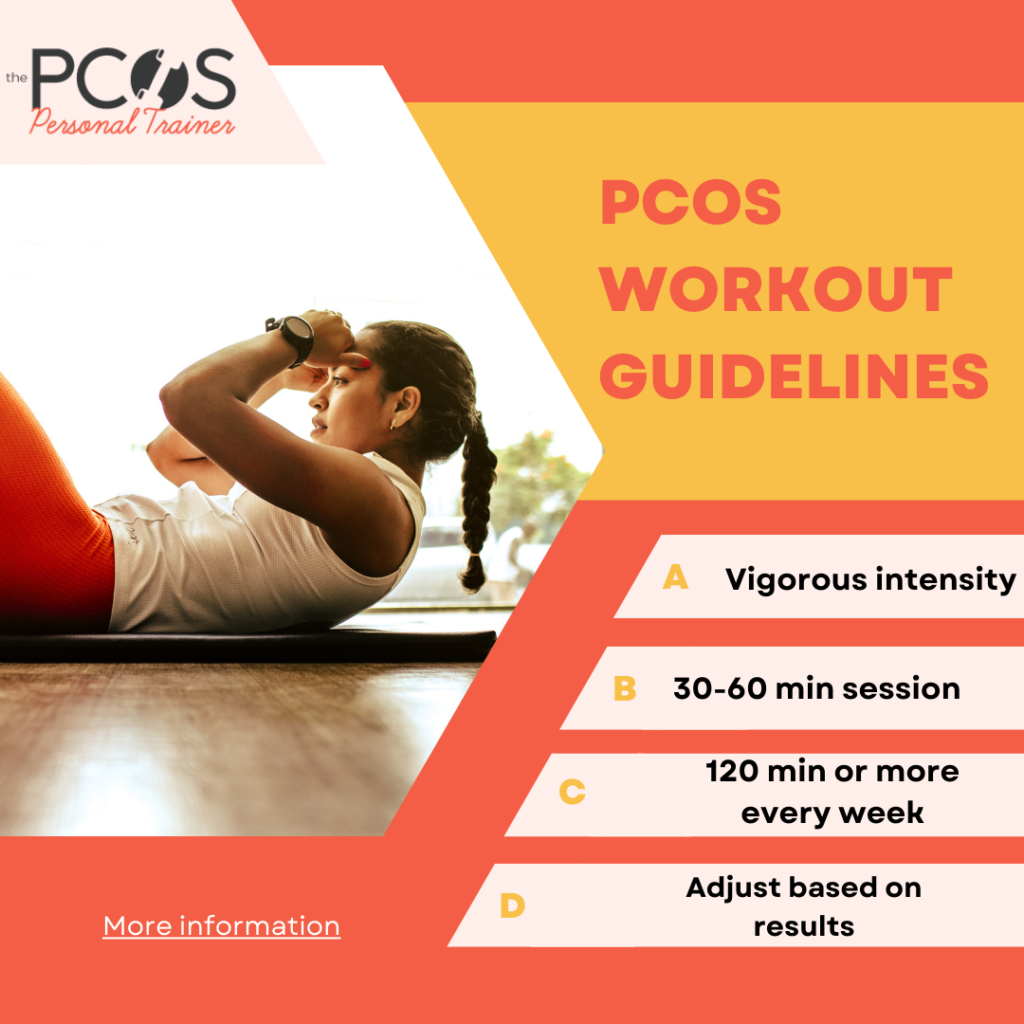
How much exercise do you need each week to improve PCOS symptoms?
Two hours of vigorous weekly exercise is enough to make significant improvements. You can break that up into multiple sessions, for example, four 30-minute workouts. The intensity of your workout should be vigorous, so if 10 is exercising with maximum effort and 1 is sitting on the couch, aim for a 7-9 out of 10.
Why? A recent review of multiple medical studies found that women with PCOS who exercised vigorously for at least 120 minutes a week improved in numerous health markers like androgens, insulin resistance, and heart health.
How long should each workout last?
The ideal time frame is 30-60 minutes for a single session. You should remain flexible and adapt your routine to your schedule. Exercise is so effective at improving PCOS that even 10 minutes is well worth doing.
Why? A recent review of multiple medical studies found that women with PCOS who exercised vigorously for 30-60 minutes a day were less likely to have anovulatory infertility (aka, they were more likely to have healthy cycles.) Even if you are not concerned with fertility, regular cycles are a good benchmark for balanced hormones and a healthy metabolism.
How much is too much?
If you are working out intensely for over 60 minutes on a regular basis, you might want to consider cutting back. Keep in mind that I said REGULAR BASIS. If you occasionally work out for over 60 minutes, it will not impact your PCOS. So you don’t need to worry about taking a long hike, bike ride, or dance class over the weekend. Have fun!
Why? The same research review found an increased risk of anovulation in PCOS patients who are heavy exercisers (over 60 min regularly.) Regardless of your family planning goals, every person with PCOS should strive to have regular cycles.
Overexercing and PCOS is a hot-button topic, and I see a lot of cysters getting confused on this point. If that’s you, I made this YouTube video to help you gain clarity.
Important Bonus guideline: Weight loss isn’t necessary!
Following these guidelines will improve your PCOS even if you do not lose weight. Most benefits (like lower androgens, ovulation, and reduced insulin resistance) occur in PCOS patients even if they do not lose weight.
For some patients, a little weight loss can improve PCOS, and exercise might help you shed some pounds. However, that is not the #1 reason to exercise if you have PCOS.
